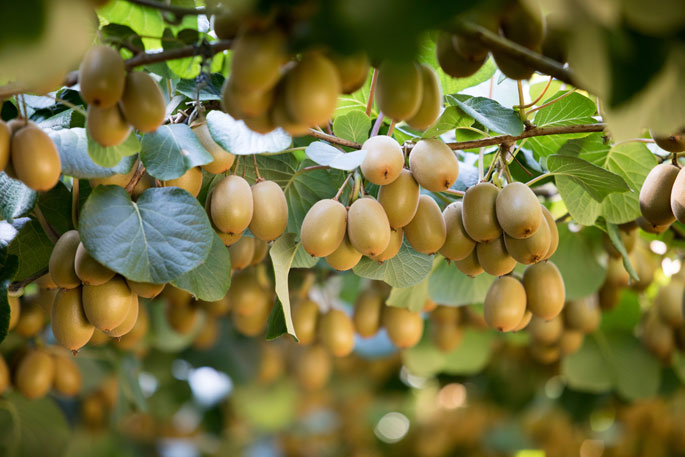This week is being dubbed an important one for kiwifruit growers, with the hearing on the EPAs recommendation to ban Hi-Cane taking place.
Hydrogen cyanamide is banned in Europe, and its re-registration is currently under review in the United States.
In New Zealand, the Environmental Protection Authority (EPA) is undertaking a reassessment of the substance, which is primarily sprayed on bare kiwifruit vines to help buds form after winter.
Hi-Cane is a hugely important tool for orchard productivity, especially in light of a warming climate, says New Zealand Kiwifruit Growers Incorporated CEO Colin Bond.
“NZKGI has always opposed any ban, including any phase out due to its impact on growers, and New Zealand as a whole, including Māori.
“NZKGI’s view is that the benefits of Hi-Cane strongly outweigh any residual risks, with workable controls.
“We strongly encourage growers to attend the hearing in-person or online.”
“As New Zealand's largest horticultural export, kiwifruit continues to play a vital role in regional economic development around the country and makes a significant contribution to New Zealand's economic performance.”
An independent economic report commissioned by NZKGI found that banning Hi-Cane in New Zealand would cost the economy $1.56 billion.
Hi-Cane, hydrogen cyanamide, has been used in New Zealand since 1988.
It can only be applied by trained professionals in commercial settings.
There are currently six hydrogen cyanamide products registered. They are Hi-Cane, Treestart, Hortcare Hi-break, Synergy HC, Gro-Chem HC-50 and Cyan. These products are restricted to commercial use only.
In September 2019, an EPA Decision-making Committee decided that grounds exist to reassess this substance after significant new information on hazards and risks emerged in a report from the European Food Safety Authority.
In 2020, the EPA opened a public call for information about hydrogen cyanamide.
Since then, work has been underway to review the responses and prepare the reassessment application.
Hi-Cane Hearing
Growers are encouraged to attend the hearing either in person or online from 8.45am-5.00pm each day.
You can find the session times for presenters in the provisional hearing schedule here, please note that they are approximate.
How to attend?
In-person: Arena Suites Mercury Baypark, 81 Truman Lane, Mount Maunganui.
The venue has a capacity of 100, tea and coffee will be provided for up to 30 people each day, and there is a café available for purchasing food and drinks.
Online: Attendees can access the live stream here.
For more information, click here.



3 comments
Only in New Zealand
Posted on 26-02-2024 11:21 | By Naysay
How on earth can you defend this . The spray drifts into residential homes. It's in the soil , food and air . All for orchard gate return. Rather shameful..
Hi Time
Posted on 26-02-2024 13:59 | By nerak
this poison was banned. Its 2024, for goodness sake. Status quo too easy? Come on growers, pick up your game, there is a safer alternative. We should be leading, not lagging.
Shame.
Toxic Chemicals Poison Humans
Posted on 26-02-2024 14:58 | By Floyd
Why does New Zealand lead from the rear with regard to toxic agri chemicals. I have been told that cancer can be directly linked to toxic chemical use. Why does the Bay of Plenty have such a high incidence of many cancers in relation to other regions? It is not rocket science to read between the lines. Come on growers develop a social conscience instead of abandoning healthy work practices and purely chasing profit.
Leave a Comment
You must be logged in to make a comment.